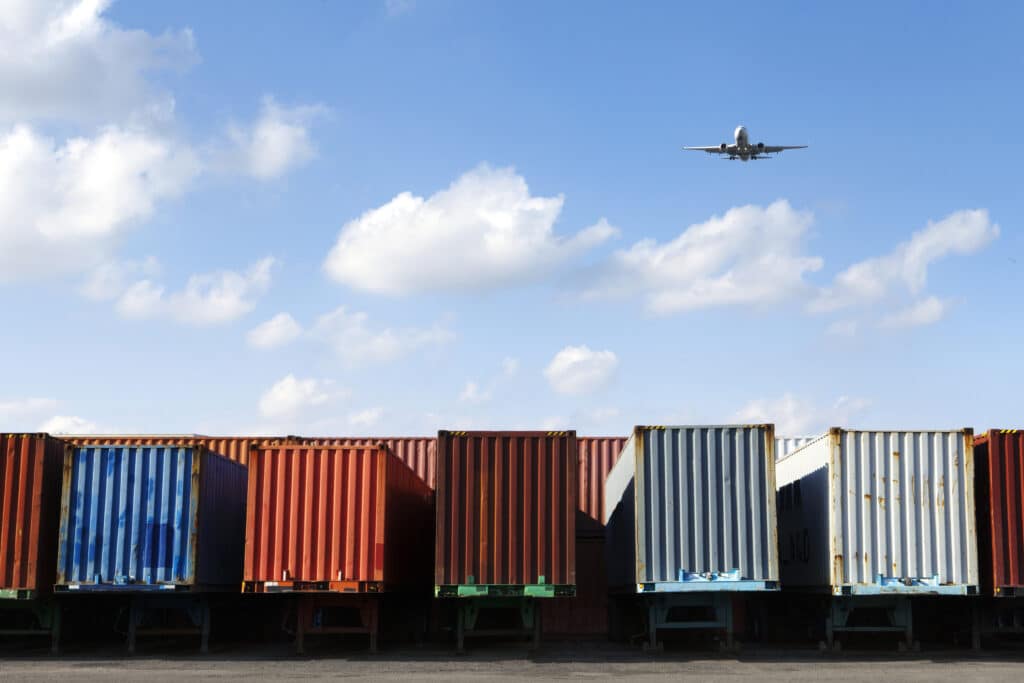This post is part 3 of a 5-part series, World in Crisis. Read part 1 here and Part 2 here.
One aspect of mission work that is extremely overlooked is logistics. Larger organizations handle it internally, and a few agencies are committed to some logistics services dedicated to Kingdom work. One of the better known of these is Mission Aviation Fellowship (MAF) in the aviation sector.
However, there is no broad initiative that addresses logistics for humanitarian and mission outreach in the very important holistic, global sense. Moreover, there is no framework to logistically invite and enable the average person who wants to be part of intelligently changing the world. Mission 3.0 must deal with this oversight. Mobilizing a new generation will not happen without a new operational norm that invites all stakeholders. It must be able to equally rally the large organization and the average man or woman to participate in identifying and moving resources to where they need to be.
My goal today is to convince you that the lack of global logistics is an issue that needs your attention. There are solutions, which we will examine in subsequent weeks, but my focus today is examining the need.
Let’s being by defining three terms that are an essential part of this discussion:
- Supply Chain: A supply chain is the network of all the individuals, organizations, resources, activities, and technology involved in the creation and sale of a product.
In mission logistics, “A supply chain is the network of all individuals, organizations, resources, activities, and technology involved in designing and implementing projects that change our world.”
- Excess Capacity: Excess capacity exists when a business is not operating at its potential and is able to easily increase production.
Excellent examples of businesses built around exploiting excess capacity are Airbnb and Uber.
In mission logistics, we focus on the excess capacity that includes the resources of individuals, families, churches, and professionals that are not being used, as well as the resources that are not being put to work in ways that change the world.
- Logistics: The process of planning and organizing to make sure that resources are in the places where they are needed so that an activity or process happens efficiently.
Remember, there are military versions of logistics; and there are business versions of logistics. In our context, we’ll use the following definition:
Logistics is the process of planning and organizing to make sure that resources are in the hands of Christians leaders in every area of the world so that global development and life-changing activity can happen effectively and efficiently.
With those three terms in mind, ask yourself, “Is there a problem?”
I hope you answered with a resounding YES!
The SUPPLY CHAIN is fragmented, inefficient, and ineffective.
The EXCESS CAPACITY we have in the global Christian community is massive.
The LOGISTICS strategy … well, unfortunately there is no global plan … and probably, there’s no plan for your own community.
Let’s delve further into this issue and look specifically at the problem from the resource angle. Resouces typically fall into five categories:
- Skills. The challenge is in matching a skill with a need. Then, once matched, how do you deal with the legal framework of someone sharing their skill(s) in another country.
- Knowledge. How do we make sure that the people who have answers are connected with the people who have questions. Each generation has so much to offer. Just imagine how much unused knowledge could be tapped and put to good use by just the population of retired people in the world?
- Relationships. You’ve heard, “It’s not what you know, it’s who you know.” But how can we share and extend relationships so that this valuable resource is put to work to change the world?
- Money. I am convinced that every single continent on earth has excess money that is NOT being put to good use. Only 5% of the evangelical world tithe. Wealthier Christians often have excess funds that they struggle to find places to invest. So, why is this a problem?
- Materials and Logistics. How much surplus material is lying around in basements, warehouses, workshops or even your own garage? How much cargo space is there on ships, planes or even cars that is not being used? Do you have airline baggage that you paid for but don’t use? I bet you could come up with 50 more types of materials and logistics not being used in a simple 10-minute brainstorm session.
To energize this kind of brainstorm session, let’s look at three types of excess capacity:
- Latent Capacity: The ability exists to create certain resources. However, because we haven’t defined it or it hasn’t been called for, it goes uncreated.
- Lying Around Capacity: This resource already exists but is not being utilized. These resources are often physically rotting, lying neglected and forgotten, and reach their expiration date before someone deals with them.
- Sharing Capacity: These are resources that we currently use, but don’t really need or feel comfortable doing without. We can easily share this excess capacity with others.
I am convinced that if we combine these three types of excess capacity—and figure out how to effectively mobilize those resources—we will have ALL that we need to do EVERYTHING that God has given us to do in plenty.
There is no global scarcity. There is no regional scarcity. Scarcity is not a valid excuse. The problem is logistics. We simply have not developed the way to use and share all that God has already blessed us with. We haven’t truly put our minds to the task. We can’t blame the world or the devil for this oversight.
This may sound depressing, but we cannot let it overwhelm us. It’s like finding gold deep in a mountain. We know it’s there. We just need to figure out how to mine it. There are solutions to this global situation, which we will explore going forward.
To challenge you, I urge you to gather with some friends for a brainstorming session. Consider excess capacity and other things we discussed and how each of you can contribute something. If you do, I’d love to hear what you come up with. Write me here: blog@assembli.net
To learn more on this topic, listen to the Mission Qritical podcast hosted by our parent organization Lead555.



